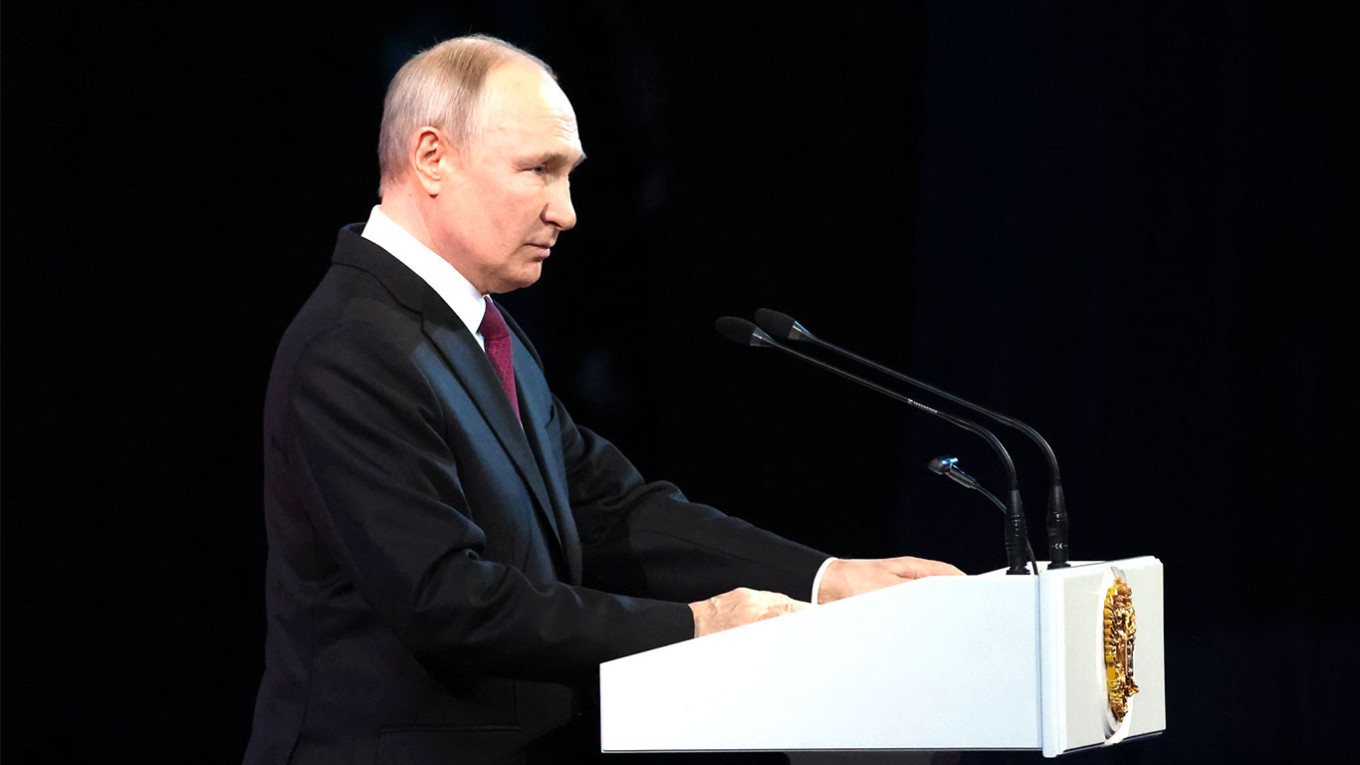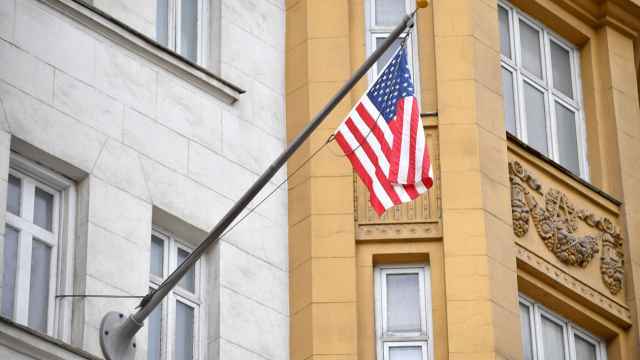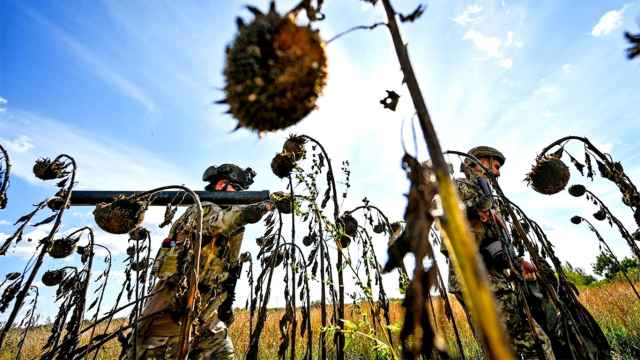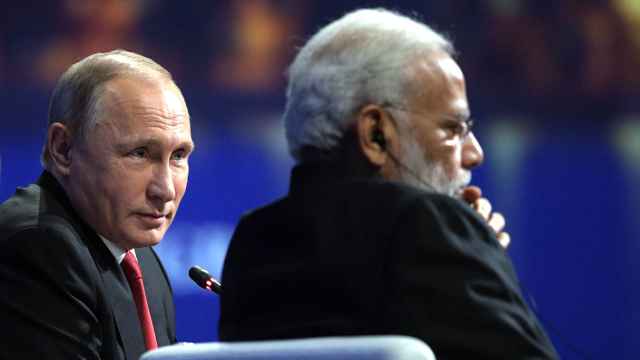On 31 March, Russia released its latest foreign-policy concept setting out its official view of the world, its major interests and goals, and how it will pursue them. It is Russia’s sixth, and darkest, such statement, following those published in 1993, 2000, 2008, 2013, and 2016.
The 9,000-word document might invite skepticism. It is a committee product in a personalistic autocracy. It espouses principles of international law, human rights, and peace that Russia has violated outrageously. It was drafted with its propaganda value in mind. Indeed, for the first time, propagandistic terms such as "Russophobia," "neo-Nazism" and "the collective West" are mentioned in this version of the concept.
But the concept matters. It is Russia’s first systematic foreign policy statement since it invaded Ukraine in February 2022. It codifies Russia’s evolving response to the adverse changes in its international position that the invasion triggered.
It refers to the war and to Ukraine only once, and even then only indirectly, claiming that the U.S. and Europe have "unleashed a new type of hybrid war" against "Russia’s vital interests in the Ukrainian direction." By contrast, the previous concept published in 2016 — two years after Russia’s first invasion of Ukraine — supported "cultural and spiritual ties with Ukraine in all areas on the basis of mutual respect and commitment." Nonetheless, the war dominates the new concept in three ways: its focus on the Global South, its contradictory view of the West, and its response to sanctions.
In a stark reversal of all previous versions, the 2023 concept devotes most attention to cooperation with non-Western states. China and India are each mentioned, though only briefly. Considering the Sino-Russian "no-limits partnership" announced just before Russia’s 2022 invasion of Ukraine, the language on "mutually beneficial cooperation" and "strengthening the comprehensive partnership" with China is remarkably cautious and restrained. The concept waxes far more enthusiastically about relations with Latin America, and especially the Islamic world and Africa. The latter merited a single paragraph in 2016 and is now portrayed at length as a "distinctive and influential center of world development" threatened by the West’s "sophisticated neo-colonial policy."
While the 2016 concept held out the prospect of deeper cooperation with NATO, the EU, and individual Western states, the situation in 2023 is dramatically different.
On the one hand, the concept portrays the West as emphatically hostile. America and its "satellites" pursue a "longstanding anti-Russian policy … aimed at weakening Russia in every possible way." Most European states are "creating threats to the security and sovereignty of the Russian Federation, gaining unilateral economic advantages, undermining domestic political stability and eroding traditional Russian spiritual and moral values." Strikingly, the concept repeatedly mentions Western efforts to undermine not merely Russia’s interests but its territorial integrity.
On the other hand, the concept envisages a future security order once European states "realize the futility of their confrontational policy and hegemonic ambitions," free themselves from U.S. dominance, and are ready to cooperate in a "new model of coexistence" with Russia.
As for the United States, the "main inspirer, organizer and executor" of anti-Russian policy, the concept suggests that in due course it could seek a more constructive relationship to secure a balance of interests. There is a whiff of Cold War detente in its revival of the Soviet term "peaceful coexistence" and its reference to "strategic parity."
The concept also outlines Russia’s response to the escalation of Western coercive economic statecraft against it. It calls for the creation of "world trade and monetary and financial systems" against abuse of "monopoly or dominant position in certain areas of the world economy." These are clear hints of Russia’s efforts to evade sanctions with new currencies and new payment infrastructures. Russia will take "symmetrical and asymmetric measures" against states that use sanctions or "information and communication technologies" to threaten Russia’s "sovereignty and territorial integrity."
This response to rapid recent international changes is strangely backward-looking. Much of it recalls the Cold War: a weakening West in a crisis-ridden world; bright vistas of cooperation with the Global South against "Western hegemony," and, most remarkably, the possibility of achieving a "balance of interests" with the United States based on a shared "special responsibility for strategic stability and international security."
Yet Russia is not a superpower equal to the U.S. — its power is diminished; it has far fewer allies, even in the Global South, than at any point in the Cold War; and its most important relationship — barely mentioned in the concept — is with a more powerful China. Russia’s reality, felt by much of its elite, is one of disorientation and isolation.
A Message from The Moscow Times:
Dear readers,
We are facing unprecedented challenges. Russia's Prosecutor General's Office has designated The Moscow Times as an "undesirable" organization, criminalizing our work and putting our staff at risk of prosecution. This follows our earlier unjust labeling as a "foreign agent."
These actions are direct attempts to silence independent journalism in Russia. The authorities claim our work "discredits the decisions of the Russian leadership." We see things differently: we strive to provide accurate, unbiased reporting on Russia.
We, the journalists of The Moscow Times, refuse to be silenced. But to continue our work, we need your help.
Your support, no matter how small, makes a world of difference. If you can, please support us monthly starting from just $2. It's quick to set up, and every contribution makes a significant impact.
By supporting The Moscow Times, you're defending open, independent journalism in the face of repression. Thank you for standing with us.
Remind me later.








